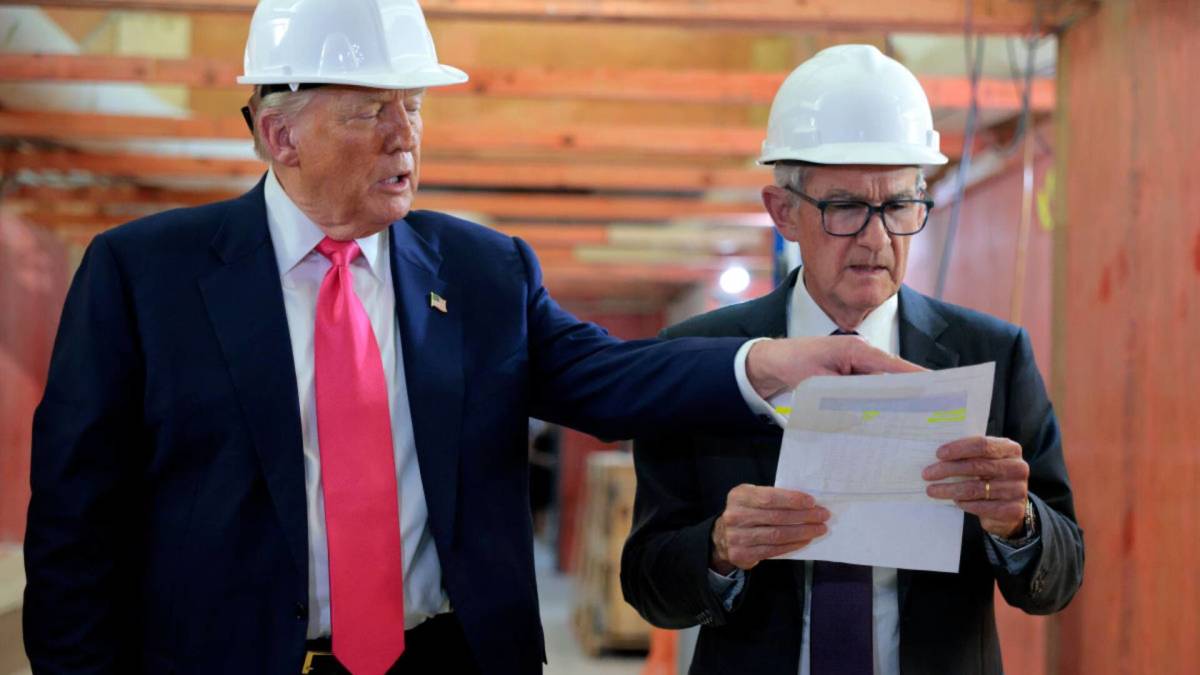No one in Washington power circles is saying publicly that the executive branch should exert intense, deep, and loyalty-demanding influence over the Federal Reserve’s monetary policymaking.
No one except for President Donald Trump, and his actions have been very transparent.
- Treasury Secretary Scott Bessent says he supports an independent Fed, albeit one that is desperately in need of reform on both its policymaking and regulatory sides.
- Council of Economic Advisors Director Keven Hassett, whom Bessett is interviewing to be the next Fed chair, also says Fed independence is critical.
The Trump administration’s historic attempt to control the Fed is whipping up concerns at home and abroad from economists and traders about the future independence of the U.S. central bank.
These efforts are escalating, with the Fed facing a critical vote on interest rates Sept. 17 as multiple volatile salvos heighten already disquieted anxieties.
The Fed is widely expected to cut the benchmark Federal Funds Rate by a quarter of a percentage point in response to mounting evidence of a weakening labor market.
Beyond that vote, economists and Fed watchers express increasing concern that packing the Board of Governors and changing the way regional bank presidents are elected could have disastrous long-term implications for the nation’s economy.

Image source: Chip Somodevilla/Getty Images
Senate Republicans hustle to seat Stephen Miran immediately
Trump loyalist Stephen Miran could be attending his first Federal Open Market Committee meeting next week as a voting member of the Board of Governors if the GOP-led Senate approves his nomination Sept. 15.
Similar votes in the past have taken weeks and sometimes months to clear the full Senate.
Miran’s temporary spot expires Jan. 31, but he could stay on indefinitely until a permanent candidate is named or he is given the role.
Related: JPMorgan’s Dimon issues stark recession message after jobs shock
Miran rankled Democrats on the Senate Banking Committee when he said he would only take a leave of absence from his White House role.
He declined their request to quit the Trump administration while serving as a Fed governor.
Princeton Professor Alan Blinder, a former Fed vice chair, blasted Miran’s intention to “wear both hats’’ while a Fed governor.
“This has never happened before. It is inconceivable,” Blinder told CNBC Sept. 11.
The last time a threat of this magnitude to the central bank’s independence harkens “maybe back to the 1830s,” Blinder said.
White House plans urgent appeal of Fed Governor Lisa Cook’s firing
Fed Governor Lisa Cook can keep her job, for now.
On Sept. 9, she won an injunction from a federal judge blocking President Trump’s attempt to fire her for cause over unsubstantiated allegations of mortgage fraud which allegedly occurred before she joined the Fed.
More Federal Reserve:
- Can the president fire a Federal Reserve governor?
- DOJ turns up the heat to remove embattled Fed official
The Department of Justice is expected to appeal the injunction, a legal move that could land at the conservative-majority Supreme Court.
With the Sept. 17 FOMC meeting less than a week away, it is highly likely that Cook will be participating in the interest-rate vote.
The FOMC’s Summary of Economic Projections, the quarterly report card and forecast on the economy, including its widely watched “dot plot,” is also due to be released Sept. 17.
The SEP helps guide market expectations and business outlooks.
Secretary Bessent holds talks to replace Powell as Fed chair
Treasury Secretary Bessent is conducting interviews with a slate of 11 candidates to replace Jerome Powell when his term as chair expires May 31, 2026.
President Trump has blasted Powell for months for not lowering interest rates three percentage points, ratcheting up his demands by invoking personal and professional criticisms with a special focus on social media slurs (“Too Late”).
Some of the candidates are past and current Fed officials, including Fed Governors Christopher Waller and Michelle Bowman, who dissented in July from holding the funds rate steady because of what both economists said were deepening signs of labor market weakness.
Economist Robert K. Triest, a professor at Northeastern University and former Federal Reserve Bank of Boston official, expects the Fed to remain “data-driven” moving forward, but took note of the politicization concerns.
He noted the president’s unprecedented firing of the then-chief of the Department of Labor Statistics in August after low jobs numbers in July, plus deep revisions of the June and May jobs reports.
“I think it’s extremely concerning that, in addition to the technical difficulties that the BLS and those agencies have at this point, that there is additional political pressure and uncertainty,’’ Triest said.
Related: Mortgage rates react as bets rise on Fed interest rate cut
#Mounting #concerns #rattle #Federal #Reserve #watchers